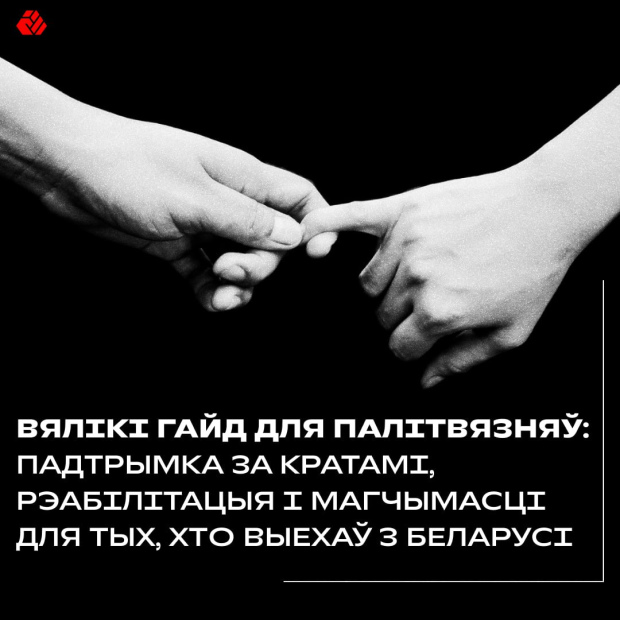What challenges do political prisoners face? What support is available for both those still imprisoned and those who have been released? What opportunities exist for those fleeing Belarus? We explored these topics, as well as the rehabilitation process for former political prisoners, through insights shared by Aliaksei Liavonchyk, a member of the coalition from the Humanitarian Ambulance Service and head of the Civic Initiative BY_help.
Comprehensive assistance to political prisoners is provided through a network of different organizations. Today, we will mostly focus on the support offered by the Humanitarian Ambulance Service, which includes the following organizations:
-
Civic Initiative BY_help – covering legal fees, compensation for victims of torture, and rehabilitation of former political prisoners both in Belarus and abroad.
-
BYSOL Solidarity Foundation – one-time payments for those released from prison; evacuation from Belarus; and retraining programs for those persecuted for political reasons.
-
Human Rights Initiative Dissidentby – consultations and information support for political prisoners and their families in Belarus, assistance with care packages for inmates, and replenishment of their personal accounts; employment and retraining after release.
-
A Country to Live In Foundation – support for families of political prisoners in Belarus, one-time payments, compensation for medical expenses; legal and psychological support for all repressed individuals, migration consultations, assistance with digital security, and cultural exchanges for children of political prisoners.
-
Consultations and information support for families of political prisoners in Belarus. Dissidentby. Contact via the website.
-
Assistance to families for care packages and replenishment of inmates' personal accounts. Dissidentby. Contact via the website.
-
Financial assistance:
One-time payment of 500 euros for those imprisoned, provided by BYSOL (application required).
Compensation for medication costs for political prisoners and their family members. Available through various coalition members. BY_help form.
A Country to Live In Foundation form.
One-time material aid for care packages, clothing, hygiene items, stationery, medication, legal services, or replenishment of a political prisoner's personal account. A Country to Live In Foundation: application form available here.
Ongoing material support for the families of political prisoners through the "Family Friend" solidarity program from the A Country to Live In Foundation.
-
Legal assistance:
Help for families in covering legal fees. BY_help program.
Consultations on Belarusian legislation and document preparation. A Country to Live In Foundation: contact @stranafundyd_YD_bot on Telegram.
-
Psychological support for families of political prisoners. A Country to Live In Foundation: contact @stranafund_psy_Bot on Telegram.
-
Technical support for digital security for the relatives of political prisoners. A Country to Live In Foundation: contact @tech_rescuer1 on Telegram.
-
Financial assistance: One-time payment of 500 euros for political prisoners released under specific criteria. A joint program of BYSOL and BY_help. Apply here, contact @bysol_pzk on Telegram.
-
Consultations on Belarusian legislation and document preparation. A Country to Live In Foundation: contact @stranafundyd_YD_bot on Telegram.
-
Consultations and information support for former political prisoners in Belarus. Dissidentby, the entry point is here. Information support through the "Until All Are Free" info-campaign.
-
Employment and retraining after release: Dissidentby helps former political prisoners find jobs or retraining courses. Participants receive personalized action plans based on their needs and situations. Apply here.
-
Retraining for those imprisoned for more than two months or under house arrest, provided by BYSOL: Currently, four courses are running: three English language groups (10 people per group, levels B1, A1, A2), a web design course (15 people), and an SMM course (22 people). These groups are already full, and new participants cannot join. Applications were open to anyone who had been imprisoned for more than two months or was under house arrest, regardless of their location (inside or outside Belarus).
-
Medical rehabilitation: Coverage for treatment costs, examinations, treatment of illnesses that emerged or worsened in prison, payment for medication, dental care, and the possibility of urgent surgeries. BY_help program.
-
Psychological rehabilitation: Assistance in overcoming psychological difficulties arising from imprisonment. BY_help program. Psychological assistance from the A Country to Live In Foundation: contact @stranafund_psy_Bot on Telegram.
-
Health recovery: Sanatorium health recovery opportunities through the BY_help program.
-
Technical support for digital security: Provided by "A Country to Live in" Foundation. Contact @tech_rescuer1 on Telegram.
Each case is considered individually, and assistance is provided based on specific needs and conditions.
"The rehabilitation program is universal, but its components depend on where the person is located — in Belarus or abroad. In Belarus, support includes medical examinations, treatment, and psychological support. Outside the country, in Poland, Lithuania, or Georgia, we can provide medical assistance, housing, a small one-time stipend, and, of course, psychological support," says Aliaksei Liavonchyk.
Access to the program and participation criteria also vary depending on location. In Belarus, we focus on security issues, while abroad, the focus shifts to other aspects of support.
It is important to note that our program is only aimed at helping political prisoners themselves, not their relatives, and we can cover treatment and examinations if an illness developed or worsened in prison. We also cover dental care, as it is one of the most common problems among former inmates. In cases where urgent surgery is needed, we can also pay for it privately. However, every case is reviewed individually to avoid unjustified requests related to issues not caused by imprisonment.
We assess whether the individual's condition deteriorated due to incarceration. For example, if a person had untreated dental issues before imprisonment, we cannot cover their treatment unless the condition worsened in prison. Similarly, if someone had cancer before imprisonment and the disease progressed during incarceration, we will definitely provide assistance.
In cases where a person had a chronic illness, such as an autoimmune disease or HIV, we will consider offering support if the prison worsened their condition. However, we cannot cover treatment for chronic illnesses unrelated to imprisonment. We can only help the person register for medication through official healthcare systems and offer support until official medical systems step in.
We can expedite examinations and help arrange official medical assistance in Poland, Lithuania, or Belarus, where it is more accessible.
This approach allows us to effectively support people until they receive help from official healthcare systems and to address their medical needs.
How much does the rehabilitation of one political prisoner cost?When it comes to the cost of rehabilitation for political prisoners, it is difficult to provide an exact figure. Aliaksei Liavonchyk, founder and head of BY_help, explains: "We don't gather average statistics on costs, and I usually don't comment on financial matters. But it’s important to understand that we try to cover the minimum requests we receive from political prisoners through our rehabilitation programs."
Liavonchyk emphasizes that each case requires individualized solutions. "When someone is released from prison in a severe condition, we first look at what options are available. We try to cover expenses through our program, but we also seek additional funding from our partners. We have several non-public partners with whom we collaborate, and together we try to cover all necessary expenses."
If these resources are insufficient, the team continues to search for other ways to help. "Sometimes we have to tell someone that we can't fully meet their request, but that is extremely rare," notes Liavonchyk.


 Continue
Continue
